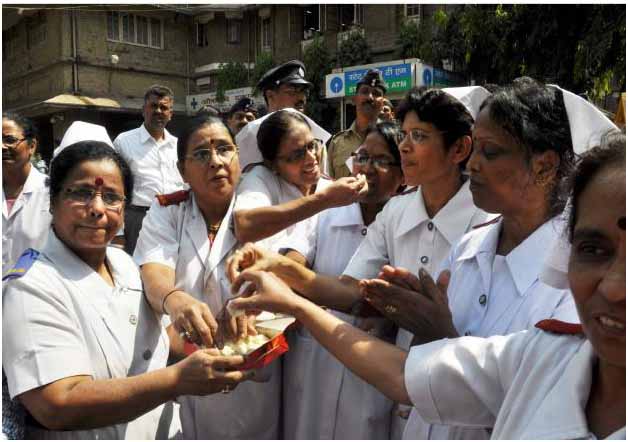SC Refuses to Stay Kerala Govt’s Notification to Revise Wages of Nurses in Pvt Hospital Sector
Mehal Jain
21 May 2018 5:31 PM IST

Next Story
21 May 2018 5:31 PM IST
The Supreme Court vacation bench of Justice AM Khanwilkar and Justice Navin Sinha on Monday refused to stay a notification dated April 23 issued by the Government of Kerala revising the minimum rates of wages payable to the employees in the private hospital sector, which superseded the existing rates of minimum wages fixed by notification of the year 2013.The bench was hearing the SLP...
